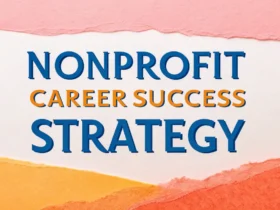Is a career in mental health calling your name? Do you find yourself drawn to understanding the human mind and helping others navigate life’s challenges? If so, exploring psychology careers might be the perfect path for you. The field offers a diverse range of opportunities, each with its own unique focus and impact. With such a spectrum of potential roles, figuring out where you fit in can feel a bit overwhelming.
This article isn’t just a list of jobs. It’s a detailed roadmap to help you understand the landscape of psychology careers and how to find the best fit for your skills, interests, and ambitions. We will go over the educational requirements, potential job duties, salary expectations, and overall career outlook for various common and niche psychology career paths.
Decoding Psychology Careers: A Spectrum of Opportunities
Psychology is broad. It covers how humans feel, act, and think. Because of this breadth, the job types are just as varied. You can find a psychology career that suits almost any interest. The key is to know your options. From helping folks cope with trauma to shaping how students learn, the role psychology plays in society is big and diverse.
Clinical Psychologist: Providing Direct Mental Healthcare
If you want to give therapy to folks dealing with tough times, then consider clinical psychology. Clinical psychologists work in hospitals, clinics, or their own offices. They meet with people, find out their issues, and come up with treatment plans. This can mean talk therapy or other methods, too.
What they do:
- Assess patients’ mental health needs
- Diagnose mental, emotional, or behavioral issues
- Develop and implement treatment plans
- Provide individual, group, or family therapy
- Conduct research on mental health and treatment effectiveness
Counseling Psychologist: A Focus on Everyday Challenges
Counseling psychologists often work with clients facing everyday problems. They assist individuals in navigating relationships, school, work, and making life transitions. While clinical psychologists deal with serious mental illnesses, counseling psychologists aid folks who need guidance and support.
What they do:
- Help clients cope with stress, anxiety, and relationship issues
- Provide career counseling and guidance
- Facilitate personal growth and development
- Offer support during life transitions
- Conduct workshops and educational programs
School Psychologist: Nurturing Student Well-being
School psychologists are important in the lives of students. They work in schools to help kids with their feelings, learning, and behavior. They team up with teachers, parents, and other staff to make a good learning space for all kids.
What they do:
- Assess students’ learning and emotional needs
- Develop and implement strategies to support student success
- Provide counseling to students and families
- Collaborate with teachers and parents to address behavioral issues
- Conduct crisis intervention and prevention programs
Industrial-Organizational (I-O) Psychologist: Optimizing the Workplace
I-O psychologists use psychology in the workplace. They work to make jobs better for workers and bosses. This could mean making training plans, picking workers, or boosting team work.
What they do:
- Develop and implement employee selection and training programs
- Analyze organizational structures and processes to improve efficiency
- Assess employee satisfaction and engagement
- Provide leadership development and coaching
- Conduct research on workplace issues
Research Psychologist: Uncovering the Mysteries of the Mind
For those drawn to the science of the mind, a research psychologist career could be it. These folks design and do studies to learn more about how we think, feel, and act. Their work adds to what we know about psychology. This helps inform treatments and practices.
What they do:
- Design and conduct research studies
- Analyze data and interpret results
- Publish research findings in academic journals
- Present research at conferences
- Seek funding for research projects
Forensic Psychologist: Applying Psychology to the Legal System
Forensic psychologists link psychology and law. They may assess criminals, give expert proof in court, or study criminal mindsets. This job can be hard. But it’s also very interesting.
What they do:
- Conduct psychological evaluations of offenders and victims
- Provide expert testimony in court
- Consult with law enforcement agencies
- Conduct research on criminal behavior
- Develop and implement treatment programs for offenders
Sports Psychologist: Enhancing Athletic Performance
Sports psychologists help athletes with the mental side of sports. They help them deal with pressure, stay sharp, and work well with others. They might work with folks one-on-one. Or, they might work with whole teams.
What they do:
- Help athletes improve their performance through mental skills training
- Provide counseling to athletes dealing with stress, anxiety, or injuries
- Facilitate team building and communication
- Conduct research on the psychology of sports
- Consult with coaches and athletic organizations
Neuropsychologist: Understanding the Brain-Behavior Connection
Neuropsychologists look at the link between the brain and behavior. They use tests to see how brain issues, like strokes or injuries, affect how folks think, feel, and act. They often work with folks who have brain damage or sickness.
What they do:
- Assess cognitive and behavioral functioning in patients with brain disorders
- Diagnose neurological and psychiatric conditions
- Develop and implement rehabilitation plans
- Provide expert testimony in legal cases involving brain injury
- Conduct research on brain-behavior relationships
Developmental Psychologist: Studying Human Growth Across the Lifespan
Developmental psychologists study how people grow from birth to old age. They look at how we change in body, mind, and feelings. They might study kids, teens, adults, or the old.
What they do:
- Conduct research on human development across the lifespan
- Assess developmental milestones in children and adolescents
- Develop and implement interventions to promote healthy development
- Consult with parents, educators, and other professionals
- Advocate for policies that support child and family well-being
Charting Your Course: Education and Training
Each of these psychology careers often needs its own path of learning and training. Understanding these paths can help you make good plans for your future.
Bachelor’s Degree: The Foundation
A bachelor’s degree in psychology is often step one for most psychology paths. This four-year degree gives you a strong base in the key ideas of psychology. You will study many topics, like how we think, feel, and grow. It’s good to know that a bachelor’s degree is often not enough to get jobs as a psychologist. But it’s needed to move to higher learning.
What you’ll learn:
- General psychology principles
- Research methods and statistics
- Developmental psychology
- Social psychology
- Abnormal psychology
Master’s Degree: Specialization Begins
A master’s degree often means two to three years of extra study. Here, you can pick a special area of psychology. This might be clinical, counseling, I-O, or another field. Master’s programs usually have classes, research, and practice. Some jobs, like school psychologist, can start with a master’s degree.
What you’ll learn:
- Advanced psychology theories and techniques
- Specialized knowledge in your chosen area
- Research design and data analysis
- Clinical skills (if applicable)
- Ethical and professional standards
Doctoral Degree: The Highest Level of Expertise
A doctoral degree, like a PhD or PsyD, is the top level of study in psychology. These programs take four to seven years. They involve classes, research, and a long internship. PhD programs focus more on research. PsyD programs focus more on practice. To become a licensed psychologist, you often need a doctoral degree.
What you’ll learn:
- Expert-level knowledge in your area of specialization
- Advanced research methods and statistical analysis
- Clinical practice and supervision (if applicable)
- Teaching and mentoring skills
- Leadership and advocacy skills
Licensure and Certification: Becoming a Practicing Psychologist
After school, you must get licensed or certified to practice psychology. The rules change by state. Often, you need a doctoral degree, a supervised internship, and to pass a test. Licensing lets you give therapy and call yourself a psychologist. Certifications can show skill in special areas.
What you’ll need:
- A doctoral degree from an accredited program
- A supervised internship or residency
- Passing scores on the Examination for Professional Practice in Psychology (EPPP)
- Continuing education to maintain licensure
Salary Expectations and Career Outlook
Knowing how much money you can make and how many jobs there will be is key when picking a career. Psychology careers often pay well. They are also growing as more folks seek mental health care.
Salary Ranges: What You Can Expect to Earn
Pay in psychology can change based on job, education, skill, and place. Here are some average pay ranges for some common psychology careers:
- Clinical Psychologist: \$85,000 – \$150,000+ per year
- Counseling Psychologist: \$70,000 – \$120,000+ per year
- School Psychologist: \$75,000 – \$130,000+ per year
- Industrial-Organizational Psychologist: \$90,000 – \$170,000+ per year
- Research Psychologist: \$70,000 – \$140,000+ per year
- Forensic Psychologist: \$70,000 – \$130,000+ per year
- Sports Psychologist: \$60,000 – \$120,000+ per year
Remember, these are just averages. Your actual pay might be different based on your job and where you work.
Job Growth and Opportunities: Where the Jobs Are
The job outlook for psychology careers is good. The U.S. Bureau of Labor Statistics expects jobs for psychologists to grow 6% from 2022 to 2032. This is about as fast as average for all jobs. There will be about 8,200 new jobs each year. This growth comes from more folks wanting mental health care and schools needing more help for students.
Factors driving job growth:
- Increased awareness of mental health issues
- Greater demand for mental health services in schools
- Growing recognition of the importance of workplace well-being
- Aging population and the need for geriatric mental health services
- Expansion of forensic psychology in the legal system
Finding Your Niche: Aligning Your Interests and Skills
Picking the right psychology career often means matching your passions and skills with the right job. Think about what you enjoy doing and what you are good at. This can help you pick a path that fits you well.
Self-Assessment: Identifying Your Strengths and Interests
Step one is often looking at yourself. Think about your skills, interests, and values. Ask these questions:
- What subjects do I enjoy studying?
- What activities do I find fulfilling?
- What are my natural talents and abilities?
- What values are important to me in a career?
- What kind of work environment do I prefer?
- Do I like working alone or with others?
- Do I prefer research or direct service?
Answering these questions can point you to the types of psychology careers that fit you best.
Gaining Experience: Internships, Volunteering, and Research
Getting practice in psychology can help you see if you like a certain job. Internships, volunteering, and research give you useful skills and link you with folks in the field.
- Internships: Internships are useful because they give you real work. You can often find them in clinics, schools, or businesses.
- Volunteering: Volunteering lets you give back and try out new jobs. You can volunteer at mental health groups, schools, or hospitals.
- Research: Research gives you skills in study and analysis. You can work with teachers or in research labs.
Networking: Connecting with Professionals in the Field
Linking with folks in psychology can open doors to advice, practice, and jobs. Go to meetings, join groups, and talk to folks who work in psychology.
Ways to network:
- Attend professional conferences and workshops
- Join psychology-related organizations
- Reach out to psychologists for informational interviews
- Connect with professionals on LinkedIn
- Volunteer for psychology-related events
Mentorship: Guidance from Experienced Psychologists
Getting advice from a mentor can be very helpful. A mentor is a psychologist who can give you advice, support, and insight. They can help you steer your career and deal with problems.
How to find a mentor:
- Ask teachers or supervisors for recommendations
- Attend networking events and meet established psychologists
- Join psychology organizations and look for mentorship programs
- Reach out to psychologists whose work you admire
Common Pitfalls to Avoid
Even though a career in psychology can be rewarding, there are a few problems you should know about. Knowing these issues can help you avoid them and have a more fulfilling career.
Burnout: Managing Stress and Maintaining Well-being
Burnout is a serious problem for psychologists. The job can be stressful. This can lead to feeling tired, depressed, and unable to work well. Knowing how to manage stress is key.
Strategies to prevent burnout:
- Set healthy boundaries with clients
- Practice self-care activities like exercise, meditation, and hobbies
- Seek supervision and support from colleagues
- Take regular breaks and vacations
- Prioritize work-life balance
Ethical Dilemmas: Navigating Complex Situations
Psychologists often face hard ethical choices. It is key to know the ethical rules and how to deal with tricky situations. This means knowing the rules, getting advice, and putting patient well-being first.
Common ethical dilemmas:
- Maintaining confidentiality
- Managing dual relationships
- Addressing conflicts of interest
- Reporting suspected abuse or neglect
- Providing services to clients with diverse cultural backgrounds
Scope of Practice: Staying Within Your Area of Expertise
It’s very important for psychologists to work within their area of skill. This means knowing what you are good at. Also, know when to send patients to others with more skill.
How to stay within your scope of practice:
- Obtain appropriate education and training
- Seek supervision and consultation when needed
- Refer clients to other professionals when necessary
- Stay up-to-date on the latest research and best practices
- Adhere to ethical and professional guidelines
Making a Difference: The Rewards of a Psychology Career
Despite these problems, a career in psychology can be very rewarding. You get to help folks, learn about the human mind, and make a change in the world.
Helping Others: The Ultimate Reward
One of the biggest rewards of a psychology career is getting to help folks. Whether you are giving therapy, helping students, or making workplaces better, you can make a real change in people’s lives.
Ways to make a difference:
- Provide compassionate and effective mental health care
- Empower individuals to overcome challenges and achieve their goals
- Promote positive social change and advocacy
- Conduct research that advances the field of psychology
- Educate and inspire future generations of psychologists
Intellectual Stimulation: A Career of Continuous Learning
Psychology is always changing. This means there is always something new to learn. Whether you are reading research, going to meetings, or trying out new methods, a career in psychology keeps your mind active.
Opportunities for continuous learning:
- Attend professional conferences and workshops
- Read academic journals and books
- Participate in continuing education courses
- Engage in research and scholarly activities
- Seek supervision and consultation from experts
Contributing to Society: Shaping a Better World
Psychology can help make a better world. Psychologists help make healthier communities, better schools, and fairer workplaces. By using psychology, you can help make a kinder and fairer world for all.
How psychology contributes to society:
- Promoting mental health awareness and reducing stigma
- Developing effective interventions for social problems
- Advocating for policies that support well-being
- Improving education and child development
- Enhancing workplace productivity and satisfaction
Should You Get a Psychology Career?
A psychology career offers the chance to help others, explore the human mind, and make a real difference. From clinical practice to research, the opportunities are vast. You can steer your path to match your passions and skills with the right career. But think about the problems and make a plan to avoid them.
With care, hard work, and a heart to help, a career in psychology can be rewarding. Use this roadmap to start on your path. The chance to make a real change in people’s lives is waiting.















Leave a Reply
View Comments